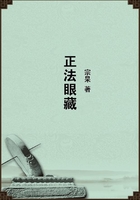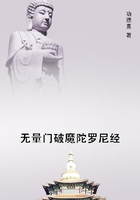Then that novelist began to reflect, and he remembered how sick the invariable motive of the French novel made him. He perceived finally that, convention for convention, ours was not only more tolerable, but on the whole was truer to life, not only to its complexion, but also to its texture. No one will pretend that there is not vicious love beneath the surface of our society; if he did, the fetid explosions of the divorce trials would refute him; but if he pretended that it was in any just sense characteristic of our society, he could be still more easily refuted. Yet it exists, and it is unquestionably the material of tragedy, the stuff from which intense effects are wrought. The question, after owning this fact, is whether these intense effects are not rather cheap effects. I incline to think they are, and I will try to say why I think so, if I may do so without offence. The material itself, the mere mention of it, has an instant fascination; it arrests, it detains, till the last word is said, and while there is anything to be hinted. This is what makes a love intrigue of some sort all but essential to the popularity of any fiction. Without such an intrigue the intellectual equipment of the author must be of the highest, and then he will succeed only with the highest class of readers. But any author who will deal with a guilty love intrigue holds all readers in his hand, the highest with the lowest, as long as he hints the slightest hope of the smallest potential naughtiness. He need not at all be a great author; he may be a very shabby wretch, if he has but the courage or the trick of that sort of thing. The critics will call him "virile" and "passionate"; decent people will be ashamed to have been limed by him; but the low average will only ask another chance of flocking into his net. If he happens to be an able writer, his really fine and costly work will be unheeded, and the lure to the appetite will be chiefly remembered. There may be other qualities which make reputations for other men, but in his case they will count for nothing. He pays this penalty for his success in that kind; and every one pays some such penalty who deals with some such material.
But I do not mean to imply that his case covers the whole ground. So far as it goes, though, it ought to stop the mouths of those who complain that fiction is enslaved to propriety among us. It appears that of a certain kind of impropriety it is free to give us all it will, and more.
But this is not what serious men and women writing fiction mean when they rebel against the limitations of their art in our civilization. They have no desire to deal with nakedness, as painters and sculptors freely do in the worship of beauty; or with certain facts of life, as the stage does, in the service of sensation. But they ask why, when the conventions of the plastic and histrionic arts liberate their followers to the portrayal of almost any phase of the physical or of the emotional nature, an American novelist may not write a story on the lines of 'Anna Karenina' or 'Madame Bovary.' They wish to touch one of the most serious and sorrowful problems of life in the spirit of Tolstoy and Flaubert, and they ask why they may not. At one time, they remind us, the Anglo-Saxon novelist did deal with such problems--De Foe in his spirit, Richardson in his, Goldsmith in his. At what moment did our fiction lose this privilege? In what fatal hour did the Young Girl arise and seal the lips of Fiction, with a touch of her finger, to some of the most vital interests of life?
Whether I wished to oppose them in their aspiration for greater freedom, or whether I wished to encourage them, I should begin to answer them by saying that the Young Girl has never done anything of the kind. The manners of the novel have been improving with those of its readers; that is all. Gentlemen no longer swear or fall drunk under the table, or abduct young ladies and shut them up in lonely country-houses, or so habitually set about the ruin of their neighbors' wives, as they once did. Generally, people now call a spade an agricultural implement; they have not grown decent without having also grown a little squeamish, but they have grown comparatively decent; there is no doubt about that. They require of a novelist whom they respect unquestionable proof of his seriousness, if he proposes to deal with certain phases of life; they require a sort of scientific decorum. He can no longer expect to be received on the ground of entertainment only; he assumes a higher function, something like that of a physician or a priest, and they expect him to be bound by laws as sacred as those of such professions; they hold him solemnly pledged not to betray them or abuse their confidence. If he will accept the conditions, they give him their confidence, and he may then treat to his greater honor, and not at all to his disadvantage, of such experiences, such relations of men and women as George Eliot treats in 'Adam Bede,' in 'Daniel Deronda,' in 'Romola,' in almost all her books; such as Hawthorne treats in 'The Scarlet Letter;' such as Dickens treats in 'David Copperfield;' such as Thackeray treats in 'Pendennis,' and glances at in every one of his fictions; such as most of the masters of English fiction have at same time treated more or less openly. It is quite false or quite mistaken to suppose that our novels have left untouched these most important realities of life. They have only not made them their stock in trade; they have kept a true perspective in regard to them; they have relegated them in their pictures of life to the space and place they occupy in life itself, as we know it in England and America. They have kept a correct proportion, knowing perfectly well that unless the novel is to be a map, with everything scrupulously laid down in it, a faithful record of life in far the greater extent could be made to the exclusion of guilty love and all its circumstances and consequences.
I justify them in this view not only because I hate what is cheap and meretricious, and hold in peculiar loathing the cant of the critics who require "passion" as something in itself admirable and desirable in a novel, but because I prize fidelity in the historian of feeling and character. Most of these critics who demand "passion" would seem to have no conception of any passion but one. Yet there are several other passions: the passion of grief, the passion of avarice, the passion of pity, the passion of ambition, the passion of hate, the passion of envy, the passion of devotion, the passion of friendship; and all these have a greater part in the drama of life than the passion of love, and infinitely greater than the passion of guilty love. Wittingly or unwittingly, English fiction and American fiction have recognized this truth, not fully, not in the measure it merits, but in greater degree than most other fiction.















